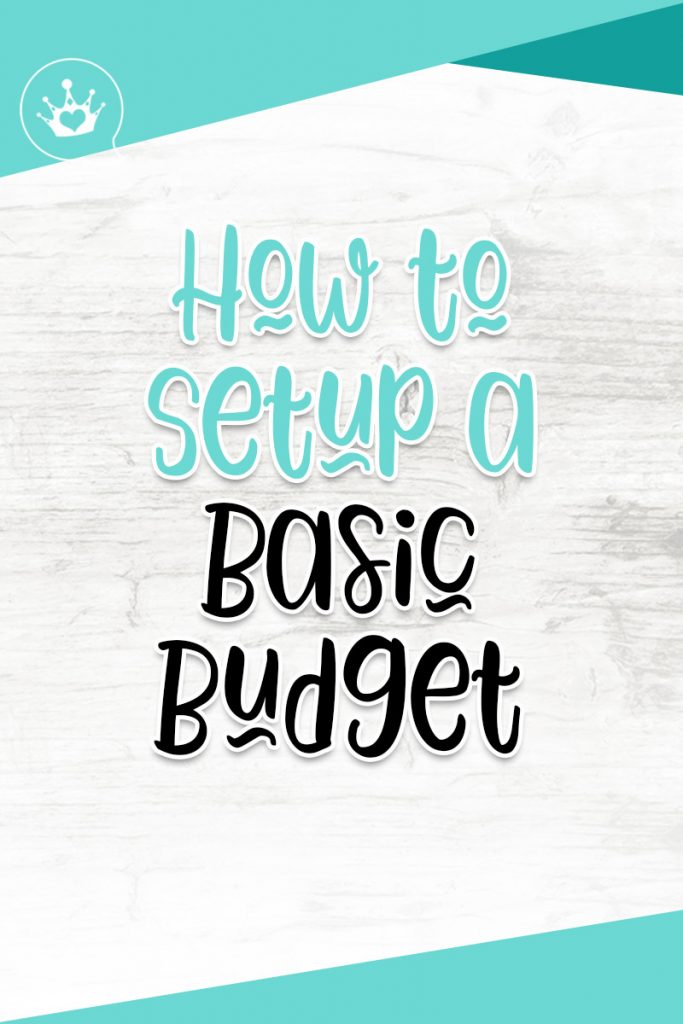Budgeting Basics

Hello Friends
Today I want to talk a little about budgeting, as I was helping a friend get a Google Sheets set up and I really enjoy playing with numbers. I love running the numbers on expected things, various scenarios, and overall just making the formulas so they change when you add stuff. I didn’t always enjoy numbers, not until I really got into Excel – well after most math classes in my HS. I love that I don’t have to do the simple calculations myself and numbers are numbers – across the board.
Not a finance blog, but I wanted to just touch on setting up a budget and living frugally a bit.
Frugal means “sparing or economical with regard to money or food.” Not cheap. This is important to understand. Being cheap is buying poor quality multiple times. Being frugal would be buying a higher quality item at a higher price, but will outlast the cheap one multiple times over. Think shoes, a better car, better quality clothes, minimalism, etc – spending the money on the right things for you. We try to live frugally. We use coupons, enter contests (pretty much all our movie tickets are won, and most of our eating out has been) when we can, and we try to do a lot of free outside activities.
For us, we are childless as well, so it helps.
So how to figure out your budget
Figure out your after-tax income
Starting by taking what you make each check and writing it down. If you’re salary, then this is easier, this is the amount you get paid. It should be pretty consistent. If you are hourly it can be a bit harder, but I would start with some minimum hours. If you are part-time that might be 20 if you are full-time that might be 35 or 45. It’s harder to say on hourly since it can change. Your pre-tax income should also be checked once in a while, do the math and just make sure. For a basic salary that should be your salary divided by 12 then 2 – if you get two checks – if that is your schedule. For hourly just multiple you worked hours x wage. So for $45k a year, you get $3750 a month or $1875 a check – if biweekly. Make sure your pay stub reflects this. This is all pre-tax or gross.
Do not be afraid to ask questions. Most of this is done by a machine that has numbers entered into it. Mistakes happen. It is not illegal for you to talk about wages with other employees – in fact, it commonly benefits you and is protected. (In the USA). I’ve seen mistakes several over my time. They usually involve a raise – since someone somewhere had to update something – and that might get entered wrong. So keep an eye on your numbers. If you get a raise, talk to HR to make sure you are good on your taxes too.
Figure out your expenses
You can do this by writing down what you did last month, or expected. Here are a few good ones to start with:
- Rent
- INS / Car
- INS / Home or Renters (highly recommend renters and some places require it)
- Clothes / You should budget some if it’s just to get new socks and undies every once in a while.
- Elec / Some apartments pay this but you can get an estimate for a place by asking the manager or landlord
- Cell / This is a great place to save some money when you can
- Net / Another great place you can save by sharing
- Food / Gotta eat, if you are busy you might budget for fast food too
- Car / If you have one
- Gas / Car needs gas
- Subs / such as Spotify, Netflix, etc
- Taxes / if you owe or pay your own
- Student Loans
- Debt
- Fun
Again this is why I love putting this in an excel sheet – or google sheets – you can create formulas and arrange these so it does the math on your maximum if you are still in the planning stages. Check out a budget I made you here: Budget Plots
I set this one up so that rent comes out in the second check – this means it’s paid ahead of the month to keep on track. This works great if rent is expensive and nearly one of your checks (if not all). It means you will have it on the 1st. I highly recommend sorting your bills this way to just make sure everything is paid ahead of time – this is great if you are doing multi-jobs, freelance, or just broke – it means you always be ahead by a bit.
Track your progress.
I also have months setup – you can add in your payments each month. I like to do an ESTIMATE column and an actual. I like to strike mine off as I pay them (similar to checking them off). Then I hide the month when everything is paid.
I also like to do a year at a time and plan out the whole year (especially on debt) to see where I am on things. Those numbers change, sometimes I will pay more or you may need to skip something – that is why I like to do it by month.
You can add a debt sheet, enter your debt with interest rates, and see how many payments you are away from getting out of debt too. That’s really nice. It also allows you to sort by the percent if you put in the interest. This lets you do the snowball method for the debt – paying off the highest interest one first, paying the minimum on the rest – then once you get that one paid off you combine the payment of the old one + the next highest and keep going. This builds each payment up higher so it goes by much faster once you get one or two paid off.
Pay yourself first.
Saving is a typical thing people say you should do first…and yes you really should. If you are able, take it directly out of your account – 10% off the top of your check and into your savings every time you get paid. But this is America and I know it doesn’t work that way.
My savings method is both unique, and probably stupid if we ever got divorced but I feel comfortable in it. I pay the majority of the bills in my house. I make more in an office job and I am good at this. He helps where needed and pays specific bills – about half of what I pay. The rest he saves. So then he pays for vacations, emergencies and keeps money on hand. This works great for us. It’s probably not a good idea for most couples. We are just comfortable with this.
Right now we are getting back on track after some long unemployment. We had a good amount of savings before this and feel good about getting there again. This year’s goal is to work REALLY HARD and get to $0. We have accumulated a bunch of debt and plan to get that paid off asap now that we are both working again, at least somewhat. For us, this means being really frugal, eating out less, picking up gigs where I can (side work helps a lot) – and taking advantage of all the benefits I can.
What I want to stress is, if you can’t save because of debt or just because life sucks – it gets better. Keep asking for more money when you can, move jobs (upward) if you can. You can absolutely get better and hopefully live better. I know it sucks sometimes though and I know savings can be a long away dream for many of us.
Revisit your budget as needed.
Come back and review your budget if you get a raise, when you pay off a card/debt or if something changes. Come back and review if you are having a bad day and want to see the numbers. I LOVE running the numbers. It brings back to calm to see the numbers work out. I need them to balance. Knowing things are paid really helps me.
Priorities change, it’s fine to change your budget as much as you need. It’s also fine to do a paper budget or any other method that works for you. I like the sheets because it does the math for me. I do a lot of things on paper because it helps me to see it. Do you.
Also, I know this has been a hodgepodge of posts lately. I’ve been pretty interested in a lot of things but I am working on switching this more or less to a Marketing blog and building out an insert section under a different domain. I am super excited about it. Just got it started and yeah, looking forward to it.
Have a happy week, and I hope this helped you if you have not put a budget together before; feel free to reach out.
